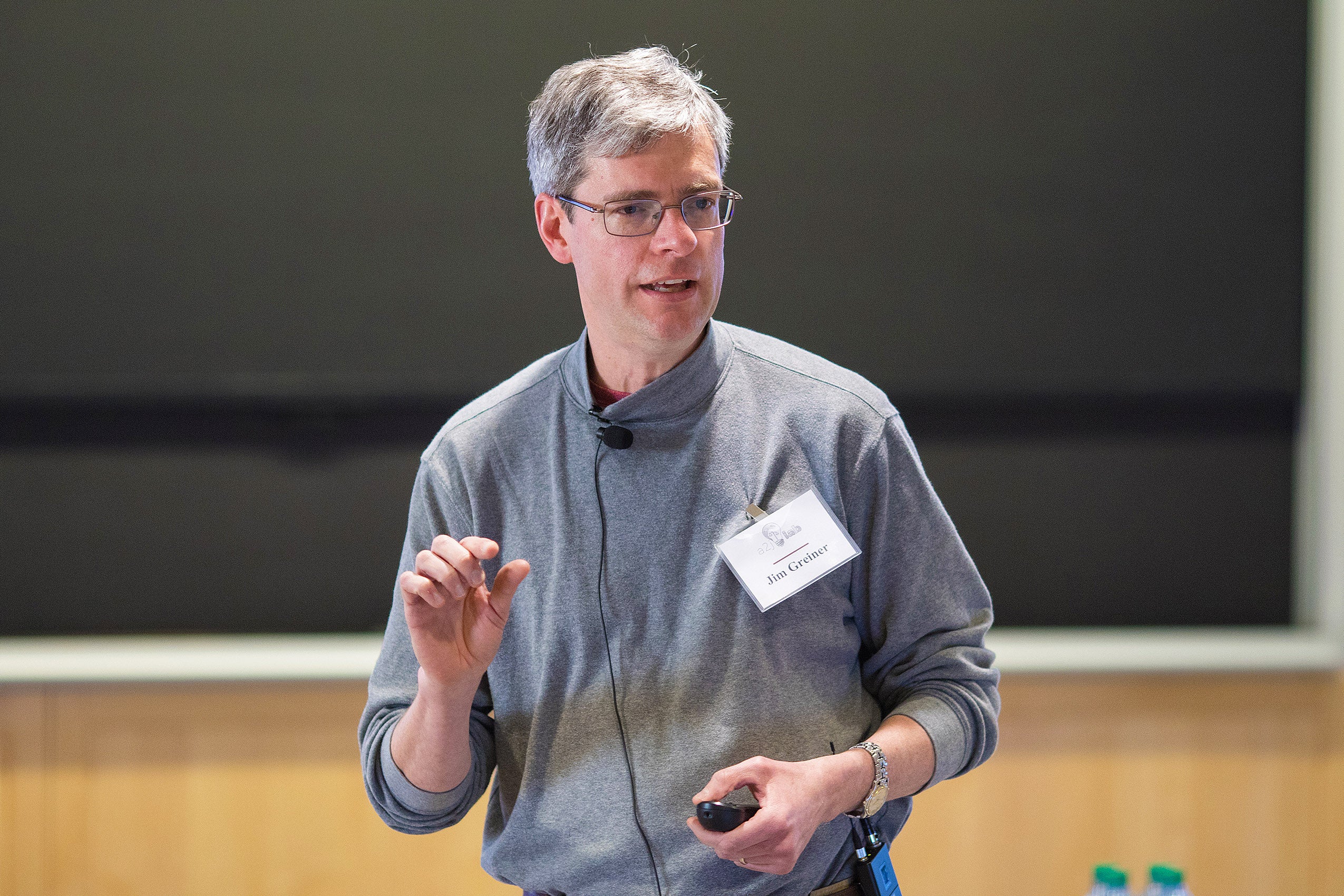Since its founding in 2017, Harvard Law School’s Access to Justice (A2J) Lab has been engaged in cutting-edge legal research, applying scientific methods to legal issues. This includes carrying out randomized control trials to determine what does and doesn’t work—something common enough in medicine, but still a controversial practice in law.
This month two Harvard Law School Professors, Jim Greiner, faculty director of Access to Justice Lab, and I. Glenn Cohen ’03, faculty director of the Petrie-Flom Center for Health Law Policy, Biotechnology & Bioethics, teamed with Holly Fernandez Lynch (former Petrie-Flom executive director, now a medical professor at the University of Pennsylvania) to write a paper, “Overcoming obstacles to experiments in legal practice,” published in Science Magazine. The paper argues that randomized studies can sometimes be more valuable in legal research than the accepted practice of relying on the experience and professional judgment of individuals.
The paper draws on lessons from biomedical and policy research, as well as the lab’s own work. As Cohen and Greiner explained, the article was designed to counter some of the controversy that Access to Justice has generated.

The article was prompted by charges that randomized trials in a legal context were not ethical, said Greiner. “The objections that we encountered at the Access to Justice Lab were sometimes phrased identically to the very word, or sometimes phrased differently but involved the same principles: Is it ethical to randomize people when there is so much at stake in the law?” One example would be eviction cases: It’s already true that not every defendant will have access to a lawyer, so Access to Justice has proposed randomizing who does. “The ethical objections would be phrased in a way that suggests that the person asking the question already knows the scientific answer: ‘How can you deprive someone of a lawyer in an eviction case?’ That implies that we know that the lawyer makes a difference, or that we would be depriving someone when there already aren’t enough lawyers to go around.”
“The purpose of the paper is to show that some of the objections being raised are very similar to ones that have been raised in medicine, where experimentalism is the norm. We want to get people in the law world thinking that way,” Cohen said.
“There was a time when medicine was very anecdotal and very observational, then there was a realization that there were a lot of things we didn’t know. There were questions of how we spend money, where to allocate doctors and nurses’ time. We did that in medicine a long time ago, and that’s what Access to Justice is doing—examining rigorously what the effect of various interventions are.”
The article argues that in some cases, randomizing legal access is in fact highly ethical. One would be where one option wouldn’t clearly do more good than the other. An example would be the use of a risk assessment score at a bail hearing. “When we don’t know what the right answer is, and we randomize a person for one option or the other, we haven’t done any harm to that person,” Greiner said.
In other cases, he said, resources are clearly helpful, but access is already limited. “We’ve heard people say, ‘You’re talking about randomizing parachutes when a plane goes down, and that’s not ethical.’ But in fact, there are situations where there aren’t enough parachutes to go around, and it would be ethical to randomize, because I know what a human making that decision is going to do, and I’m not sure I like it.” A legal parallel, he said, would be access to civil legal aid for low-income defendants. “It is incredibly underfunded, and the scarcity in medicine is nothing compared to that in law. We already have public defenders doing hundreds of felony cases simultaneously.”
“It was a little tricky to figure out where to publish the article,” Cohen said. Ultimately, they decided that a relatively short piece in a highly respected science journal might be more effective than a law review piece. “Science is one of the highest impact journals in the world, so that was a plus. And if we posted something on the shorter side, people were more likely to read it.”
Though the three authors had not collaborated on an article before, they all knew each other as friends and colleagues. Says Greiner, “The partnership was really solid. I am the field researcher, and I’d like to have a clearer sense of what the ethics are. I am not trained as an ethicist, but Holly and Glenn both are. They both have J.D.s, and Holly was able to adapt the medical ethics to the law framework because she has worked in medicine.”
The three authors are planning to collaborate further; meanwhile they want their piece to stimulate discussion. “One great thing would be to have people disagree with us,” Cohen said. “A lot of people go to law school because they don’t like math. But I’m a lawyer who loves science, and I think there’s something great about bringing medicine into law.”
The more ambitious goal, Greiner said, is for randomized trials to suggest answers that have been elusive so far. “In some cases the possibility of getting it wrong is really high, but that is a reason to randomize rather than avoiding it. What I hope for is more rationality and humanity in our legal system.”